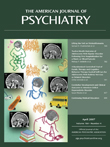Abstract
Objective: Anomalies in error processing have been implicated in the etiology and maintenance of major depressive disorder. In particular, depressed individuals exhibit heightened sensitivity to error-related information and negative environmental cues, along with reduced responsivity to positive reinforcers. The authors examined the neural activation associated with error processing in individuals diagnosed with and without major depression and the sensitivity of these processes to modulation by monetary task contingencies. Method: The error-related negativity and error-related positivity components of the event-related potential were used to characterize error monitoring in individuals with major depressive disorder and the degree to which these processes are sensitive to modulation by monetary reinforcement. Nondepressed comparison subjects (N=17) and depressed individuals (N=18) performed a flanker task under two external motivation conditions (i.e., monetary reward for correct responses and monetary loss for incorrect responses) and a nonmonetary condition. After each response, accuracy feedback was provided. The error-related negativity component assessed the degree of anomaly in initial error detection, and the error positivity component indexed recognition of errors. Results: Across all conditions, the depressed participants exhibited greater amplitude of the error-related negativity component, relative to the comparison subjects, and equivalent error positivity amplitude. In addition, the two groups showed differential modulation by task incentives in both components. Conclusions: These data implicate exaggerated early error-detection processes in the etiology and maintenance of major depressive disorder. Such processes may then recruit excessive neural and cognitive resources that manifest as symptoms of depression.



